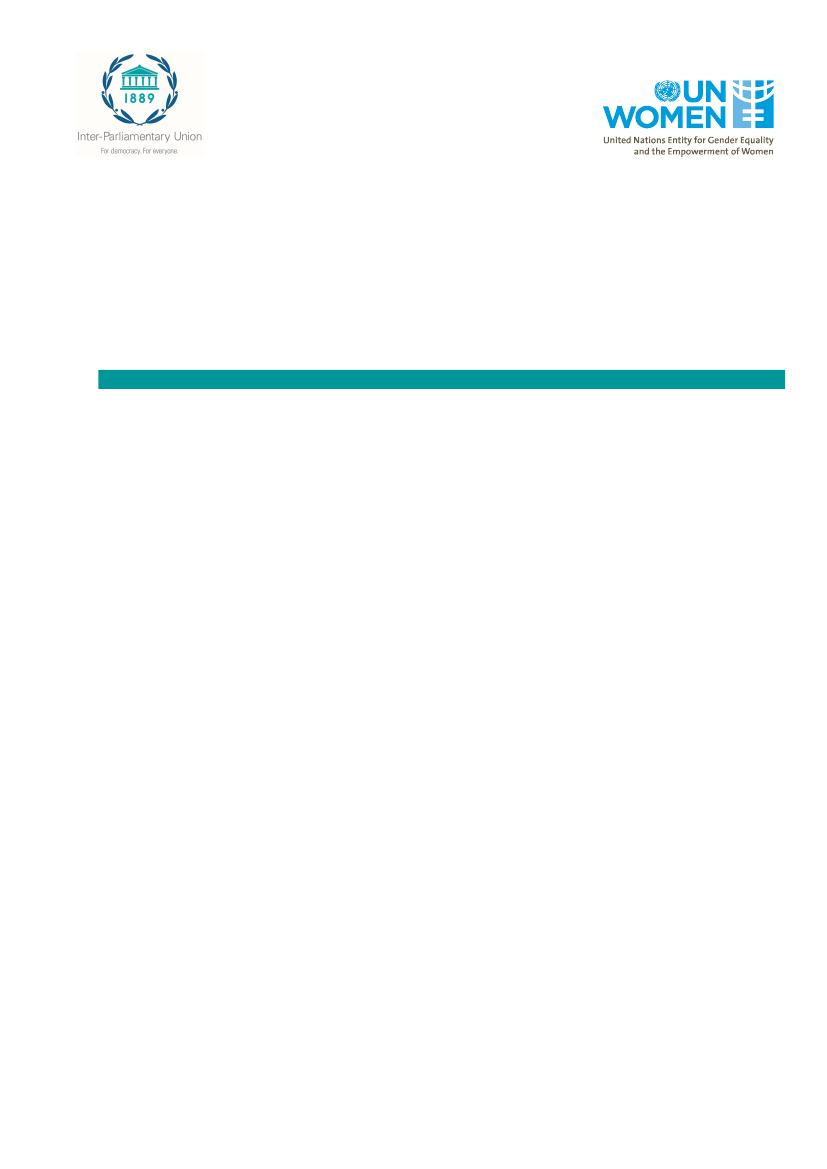
What will it take to reach gender parity in political
participation in a post-COVID-19 world?
A parliamentary event organized by the Inter-Parliamentary Union and UN Women
at the 65th Session of the Commission on the Status of Women in line with the priority theme
Women's full and effective participation and decision-making in public life, as well as the elimination of
violence, for achieving gender equality and the empowerment of all women and girls
Tuesday 23 March 2021, virtual event
CONCEPT NOTE AND PROVISIONAL AGENDA
Background
The impacts of crises are often hardest felt by women, and COVID-19 is no exception. Beyond the
public health crisis, COVID-19 has become a full-fledged economic and social crisis, and persistent
obstacles have exacerbated the participation of women in political decision-making and leadership.
Violence Against Women and Girls (VAWG) – the shadow pandemic – has worsened with lockdown
measures and economic pressure.
An effective response to the pandemic and its social and economic consequences requires strong and
sustained leadership, action and the participation of everyone affected. Unfortunately, achieving
balanced power between women and men in decision-making is more crucial than ever. Yet women
remain substantially underrepresented among decision-makers worldwide. Women make up only a
quarter (24.9 per cent) of members of national parliaments worldwide
1
and 36.3 per cent of elected
officials in local deliberative bodies. Globally, as of 1 January 2020, only 21,3 per cent of ministers are
women. In only 30 cabinets worldwide do women make up at least 40 per cent of ministers.
2
Women’s
under-representation as health ministers is especially concerning in the midst of an ongoing pandemic:
while women make up 70 per cent of health sector workers, in 2020, only 24.7 per cent of the world’s
health ministers were women,
3
and they held just 25 per cent of senior roles in health institutions.
4
During the pandemic, many women are shouldering additional domestic and care work at home, which
negatively impacts on their ability to fully participate in public life. For politicians, both women and men,
online platforms have become effective tools for interaction with their constituents. This has, to some
degree, helped facilitate work-life balance for some, but has also revealed gender inequalities between
legislators. For example, in Kenya, women politicians have reported that they are increasingly exposed
to online and technology-facilitated gender-based violence, including physical threats, sexual
harassment, stalking, “Zoom bombing” and sex trolling.
5
COVID-19 responses benefit from women’s participation. Gender-responsive policies and women’s
leadership are vital for mitigating the gendered impacts of COVID-19 and ensuring a more equitable
recovery. Without women’s participation in decision-making now, there is a risk that the fragile gender
equality gains achieved over the past 25 years will be lost.
Parliaments are challenged to demonstrate much-needed political will, produce gender-responsive
legislation, and conduct gender-sensitive oversight of government action and resource allocations
during the crisis. They are also key players in driving gender parity in political decision-making and
leadership and mobilizing popular support in that direction. MPs should contribute robustly to build
support within their own political parties and blocs for women’s equal participation in political decision-
making and leadership.
The time to act is now, as renewed commitments and accelerated actions are needed more than ever
before. Globally, the leaders of parliaments set the tone at the Fifth World Conference of Speakers of